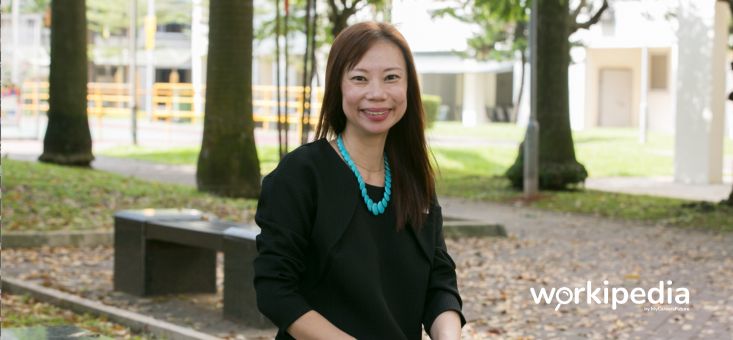Years back, I was a headhunter and worked with high-flying senior candidates brimming with confidence. It doesn’t take much to prepare them for their job interviews.
It was just a matter of coaching them to align them to the hiring organisation’s goals and expectations and they will usually do well at the interviews.
As a Career Coach at WSG Careers Connect for close to two years, I see the other side of jobseekers as well. I have encountered many recently retrenched and long-term unemployed jobseekers who tend to have low self-esteem.
As such, they often perform poorly in their interviews without even realising it. To help them prepare for their interviews, here are the three key tips to boost their chances of success at interviews.
Been job-hunting? Make an appointment to use our suite of Career Matching Services.
Tip 1: Practice with someone to gain confidence
A face-to-face interview is the best chance to present to the hiring company how well you fit the job, the team and the office culture.
The best way to prepare for this is to practise the questions you are likely to encounter with someone. If time permits, work with a career coach who can further help you shape your responses and identify any blind spots you may have.
Of the clients I have coached, one who left a particularly deep impression on me was a 57-year-old PMET who had been unemployed for more than a year and had not been to any job interview for over 10 years.
During our first interview role-play, he was like a nervous kid with his hands tucked under his legs. He beat around the bush and could not give any specific answers to the questions asked.
All his answers were littered with ‘lahs’, and he kept rocking to and fro on the chair throughout the session.
After we wrapped up the role play, I gently pointed out these blind spots, how he could rectify the issues, and how to better answer the questions.
During the second and third rounds, we went through the same questions with a few more tricky ones, for example: ‘what have you been doing for the past one year’, and again discussed ways to fine-tune his answers.
Eventually, he was confident enough to attend an actual interview and subsequently secured a job.
Read Also: Winning at Interviews: Here’s How You Do it
Tip 2: Know your facts
Your knowledge and understanding of the company, the job you applied for and how you can add value to the organisation, will give you an added advantage during the interview.
Therefore I always ask clients to attempt these tasks before meeting me:
- Research on the company and its culture. Learn more about the interviewer(s) you are likely to meet through LinkedIn or your social network so as to find common topics you can use as conversation starters during the interview.
- Prepare answers in point-form to some common questions e.g. Tell me about yourself, what are your strengths and how can you add value to this role?
- List your pull factors, not push ones — such as what attracted you to the company and job.
Tip 3: Be positive
Presenting yourself professionally is important. Think about the image you wish to present and carry yourself, the way you want people to see you.
Never complain about previous employers or recall past problems. Always answer positively and end each answer on a positive note.
Even when answering questions about your weaknesses, eg. what are your weaknesses or challenges. Do not describe only the things you are poor at. Go one step further and explain what you did to improve the situation.
Keep updated on the latest jobs on WSG Jobs and Career Advice Telegram channel!
For example, if communication is one of your challenges, a possible response would be, “Telling my co-workers the mistakes they have made and the mess they have created was very challenging for me.
“So I requested to attend a workplace communication course to learn how to communicate better.
“To my surprise, I not only learnt how to frame objective comments and provide constructive feedback, but I also gained confidence in speaking to my co-workers. This really made working together so much more pleasant.”














